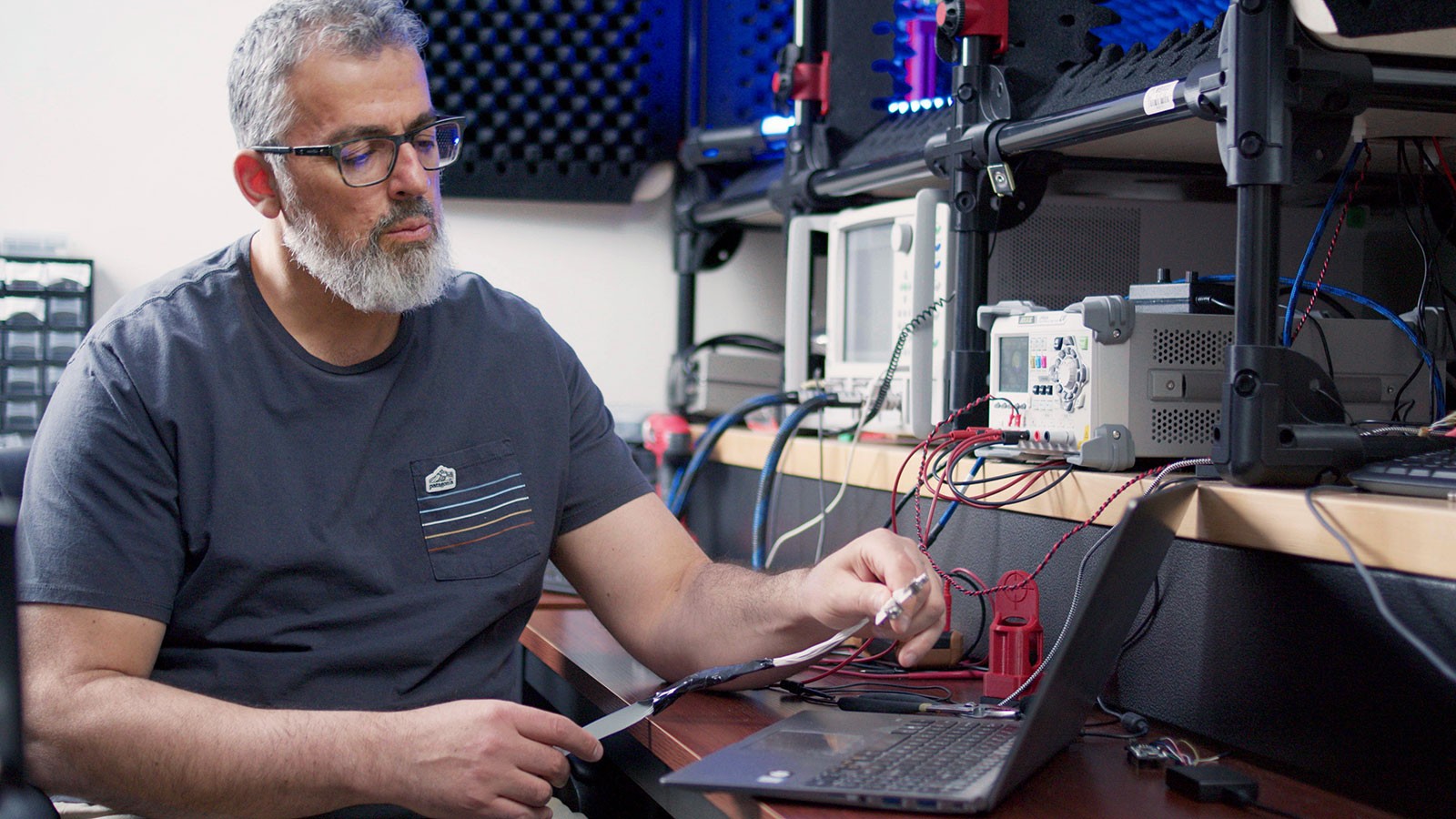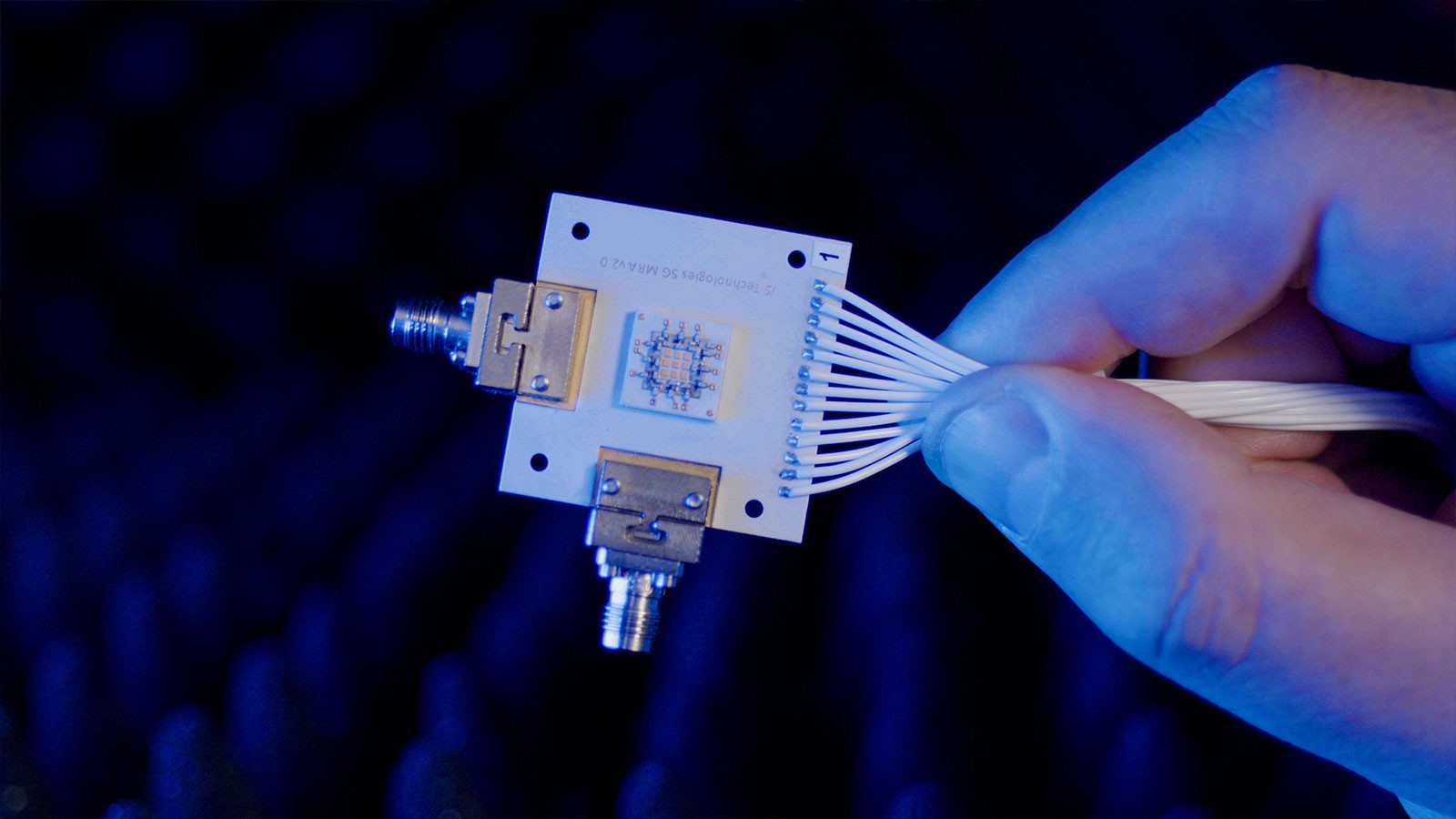USU Professor's Smart Antenna Could Revolutionize Telecommunications Industry
By Sydney Dahle |
A new antenna technology developed at Utah State University will soon be tested by a national wireless provider for a pilot study that could revolutionize the telecommunications industry.
Bedri Cetiner, a professor of electrical engineering, patented a new antenna called a multifunctional reconfigurable antenna that can adapt to locate a signal’s direction and frequency.
For more than a century, conventional antenna equipment was only capable of broadcasting and receiving signals in all directions. Cetiner’s design is more efficient because it sends and receives signals in a particular direction, shape and frequency, which saves energy and better utilizes the electromagnetic spectrum. Improved antenna designs are critical to keep up with the increasing demands users expect from their mobile devices.
“Moving from 4G to 5G is not simply a matter of retrofitting existing technology,” Cetiner said. “5G is an entirely new paradigm.”
Massachusetts-based Verana Networks, licensee of Cetiner’s patented antenna, announced plans earlier this year that Verizon will trial its 5G base station equipped with the antenna module in large metro areas.
“5G allows for higher frequency and more bandwidth, which translates to more data and more users on a network,” Cetiner said. “We are no longer in the Marconi era, but one of directive and steerable communication.”
In 2014, Cetiner launched i5 Technologies, a USU spinoff company focused on innovative telecommunications equipment. The licensing deal is a major success for Cetiner and his company, which employs three of his former students.
“At i5 we specialize in innovation and we are always learning,” he added. “Innovation allows me as a teacher to educate my students with the skills they need to work as the next generation of engineers. My research gives me the chance to bring my experience into the classroom. It’s all connected.”
Cetiner says his antenna technology helps reduce delay in sending and receiving data and creates new opportunities with applications in education, medicine and more.
“Imagine a surgeon using a robot to perform surgery miles away; or teaching a classroom of students across the globe,” he said. “You don’t want delays when you’re doing that kind of work. With improved antenna design and higher data transfer rates, we can do things we never thought possible before.”
Bedri Cetiner, a professor of electrical engineering, patented the multifunctional reconfigurable antenna, which can adapt to locate a signal's direction and frequency.
Massachusetts-based Verana Networks, licensee of Cetiner's patented antenna, announced plans earlier this year that Verizon will trial its 5G base station equipped with the antenna module in large metro areas.
WRITER
Sydney Dahle
Public Relations Specialist
College of Engineering
435-797-7512
sydney.dahle@usu.edu
CONTACT
Bedri Cetiner
Professor
Electrical & Computer Engineering
(435)797-3320
bedri.cetiner@usu.edu
TOPICS
Engineering 336stories Technology 140stories Innovation 90storiesComments and questions regarding this article may be directed to the contact person listed on this page.









